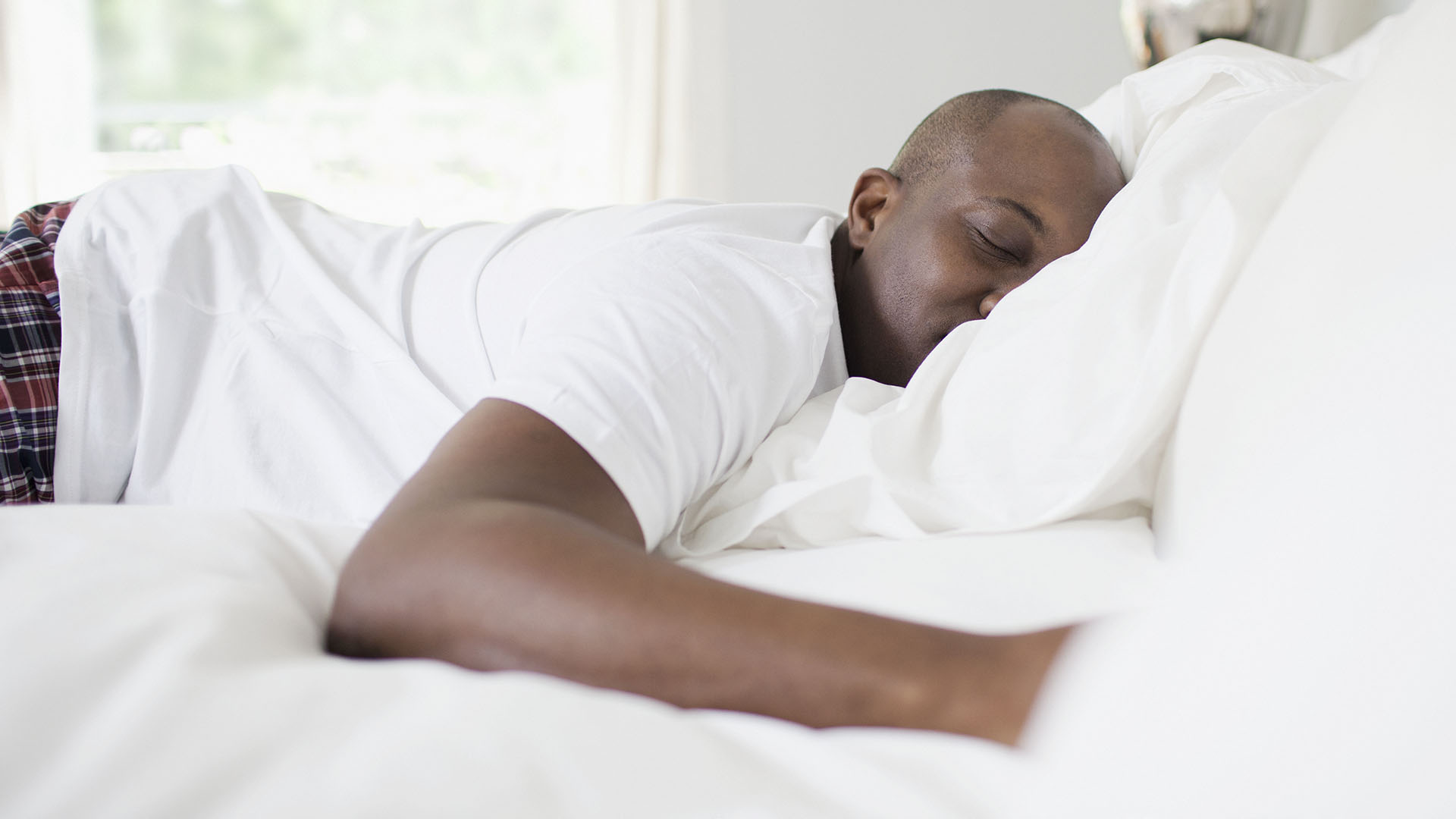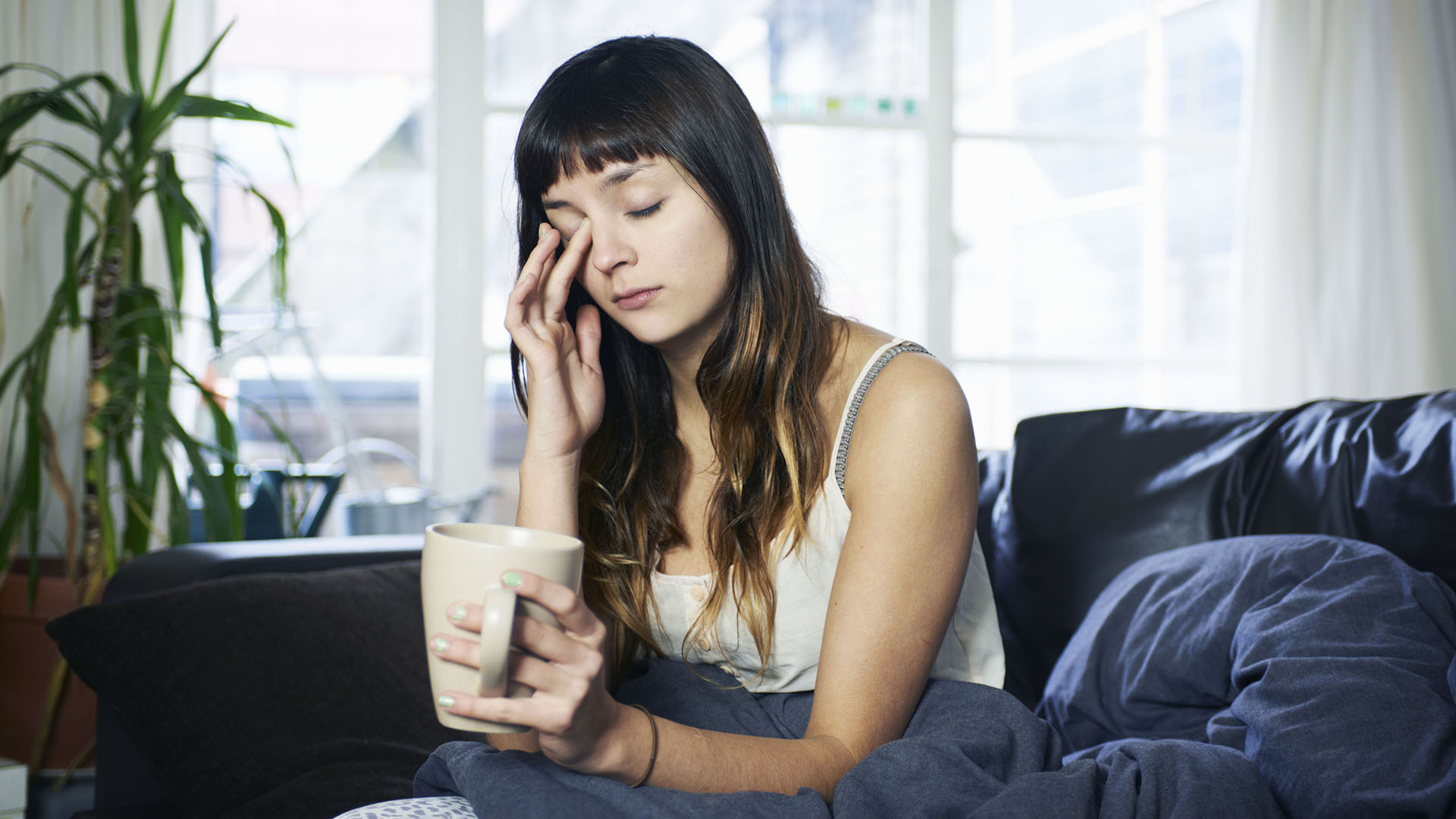Oversleeping: how much sleep is too much?
Are you oversleeping? This is how much sleep is too much sleep

Sign up for breaking news, reviews, opinion, top tech deals, and more.
You are now subscribed
Your newsletter sign-up was successful
We all moan about how much sleep we're not getting, but rarely do we talk about the downsides of oversleeping – and how much sleep is too much for our bodies. Surprisingly, oversleeping can have as big of an impact on our bodies as not getting enough sleep can, making us more prone to diseases such as heart conditions or diabetes.
Most of the best fitness trackers or smart watches now have sleep tracking features which help us record our sleeping patterns, so it's easier than ever to look at how much sleep we're getting – or if, in fact, we're oversleeping. (If you're having the opposite issue, check out our best mattress guide to upgrade or bed, or explore our expert tips for how to sleep through the night.)
We look at the latest studies and talk to the experts about how to tell if you're oversleeping, how it can affect your body and how to get into a better sleep routine – in a bid to stop oversleeping.
How much sleep is recommended per night?
Busy work schedules, family or even a hectic social life means our sleeping patterns aren't always consistent – meaning most of us fail to get enough sleep every night. The National Sleep Foundation recommends the average adult should be getting 7-9 hours of sleep each night, while experts also advise that a couple of those hours should preferably be before midnight. But is this the same for everyone, and how much sleep is too much sleep?
"It's difficult to determine what a person's ideal amount of sleep is without understanding their circumstances," reveals Amy Korn-Reavis, a sleep specialist coach at BetterUp.
"However, if you are unsure how much sleep you need, consider starting with 7 hours and then check in with yourself to see how you are feeling."
Sleeping over 9 hours a night, consistently over a few weeks or months, is considered oversleeping – or a condition called Hypersomnia – the opposite of insomnia, where you struggle to sleep.
Sign up for breaking news, reviews, opinion, top tech deals, and more.
If you are tracking your sleep, and feeling tired when you wake up, even though you've overslept, looking at your sleep metrics is a great way to start figuring out why you feel tired and if you can change anything about your sleep routine.
How do you know if you're oversleeping?
We've all been programmed to try and squeeze in as much sleep as possible – but if you're sleeping more than average and still feeling sluggish, unfocused or having memory issues, it could be time to delve further into your sleeping habits.
If you're sleeping for more than 9 hours, or more, every night, consistently, then you could be oversleeping – impacting the rest of your waking life.
However, it could also be that your body is still trying to catch up after a virus, or a bad period of sleep. Korn-Reavis says the biggest question she gets from clients is, "I slept 8 hours, why am I still tired?"
However, she said it could depend on several conditions: "Did you not sleep well the night before? Did your alarm wake you up out of REM sleep? Have you been short sleeping over a long period of time, and you just changed your bedtime routine?"

So, how can you start to change your sleeping patterns? "Even 10 hours of fragmented or poor-quality sleep won't be as beneficial as seven hours of undisturbed, restorative sleep," says sleep expert and physiologist Dr Nerina Ramlakhan, "If you feel tired after long hours of sleep chances are you need to establish a new healthy sleeping pattern."
"A good way to start is to stick to a consistent sleep schedule. Going to bed and waking up at the same time every day will help to maintain your circadian rhythm, which is the body's internal clock which is responsible for our ability to fall asleep at night and wake up in the morning."
Make sure you stick to your schedule, even when you're feeling particularly tired. For home workers, it can be tempting to start working from bed when you don't feel you've had enough sleep. However, rather than helping, disrupting your routine might cause even more sleep issues.
What happens to your body (or mental health?) if you sleep too much?
One study by the University of Warwick showed that oversleeping was associated with a greater risk of death. While another study, in the Journal of the American Heart Association, claimed that those who slept for more than eight hours a night had a greater risk of dying earlier from heart disease.
Diabetes is also associated with oversleeping, as its increases your blood sugar levels. While this is then linked with gaining weight – as people who sleep an average 7-8 hours a night are more active – according to this study.
Although lack of sleep is normally associated with depression, it can also be a product of oversleeping. While focus and brain power can also be affected when you get too much sleep.
What can cause you to oversleep?
Pressing the snooze button may feel like a normal reflex when you get woken up, but if it's causing you to oversleep, as you're feeling more fatigued, it could be down to several factors.
If you're suffering from an illness your body may also be craving more sleep than normal – the common cold, flu or even a stomach bug can leave us fatigued.
A change in your sleep pattern could also cause you to oversleep – getting yourself into a sleep debt cycle, where you survive on bare minimum sleep during the week, and make up for it on the weekends can be detrimental in the long run.
Dr Ramlakhan advises anyone oversleeping to create a sleep schedule, ensuring that you go to bed early 3-4 times a week. "Our sleep before midnight is the most restorative phase of sleep, so getting to bed before or around 10 pm at least 3-4 nights is beneficial for gaining the really deep, nourishing slumber that sets up our energy levels for a happy and productive day," she says.
Korn-Reavis says oversleeping could highlight issues such as sleep apnoea, anaemia or vitamin deficiency. While you may also oversleep when you are feeling down or depressed. "If you are finding that you do not want to get out of bed or that you are sleeping 9+ hours, then you might want to consider talking to a mental health professional. You should also look at your day to see if you are not getting enough movement."
Read more:
- How to sleep when you're stressed: 4 techniques to try
- Does counting sheep really help you sleep?
- How to sleep on a plane and wake up refreshed

Sarah is a freelance writer - writing across titles including Woman&Home, Fit&Well, TechRadar, the Independent and the BBC. She covers a variety of subjects, including trends in beauty, business and wellness - but her biggest passions are travel and fitness. She can normally be found trying out the latest fitness class or on a plane to an exotic destination. While she loves to combine the two - signing up to do hiking holidays in LA, intense boot camps in Bali - last year she went on her dream activity holiday: paddleboarding around deserted islands in Croatia.